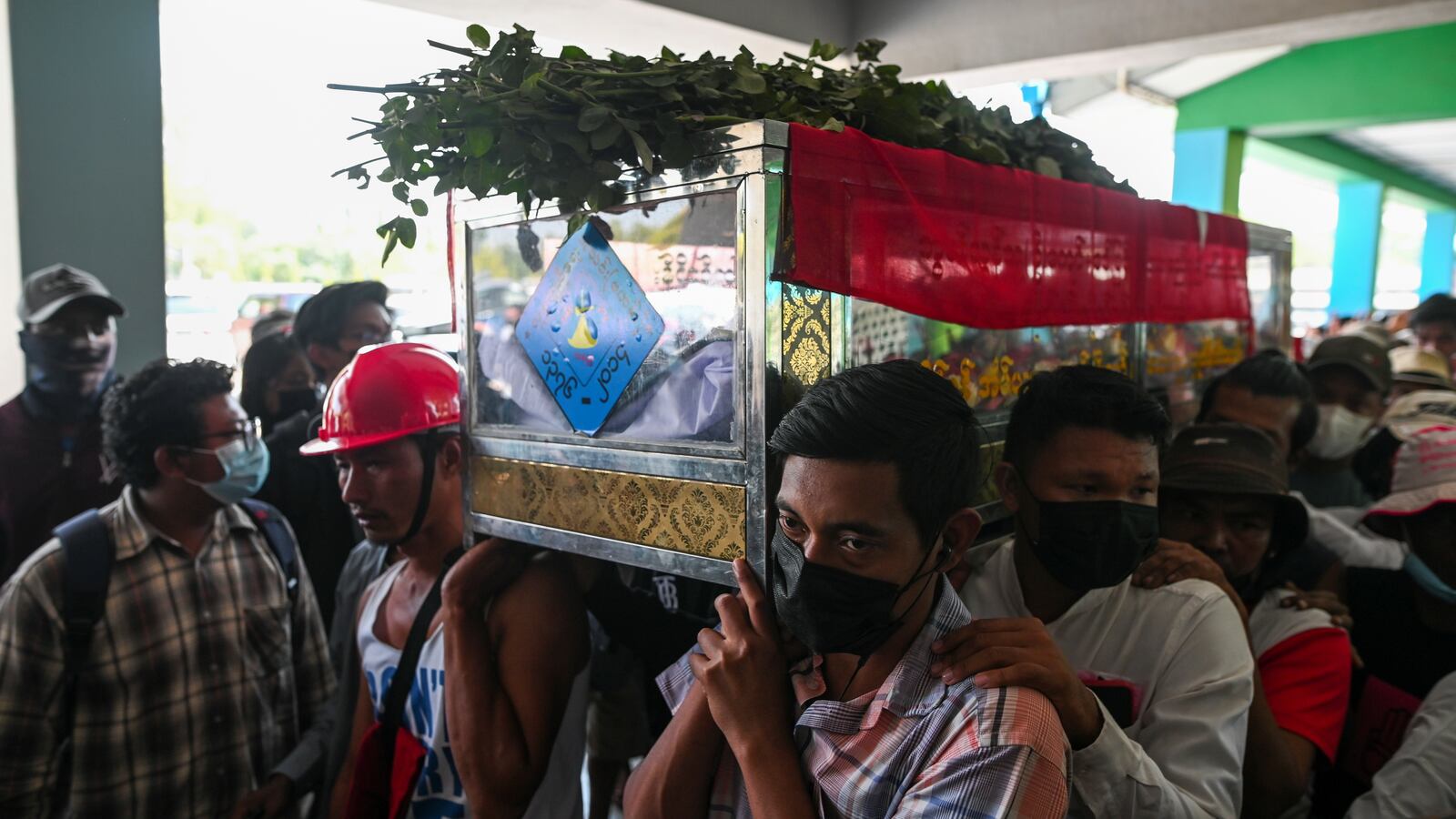One of the world’s leading writers’ associations says nine poets have now been detained and two have been shot dead as part of the military junta’s crackdown in Myanmar.
PEN International said the latest poet—a former visiting fellow at the University of Iowa—was arrested by the junta on Tuesday, the same day that several of the caged authors were sentenced to a month in prison.
Poets Myint Myint Zin and K Za Win never even made it as far as a police station. They were armed only with their subversive thoughts and words as they stood up against the brutal regime behind the Myanmar military coup last week. But the military didn’t care and fatally shot them anyway, according to a statement by Salil Tripathi, chair of PEN International’s Writers in Prison Committee. “The poets had words; the government had guns,” Tripathi said. “The poets did what they could with the tools they had—write, express, speak. The government did the only thing it knew with the tool it had. Its forces fired.”
The two poets are among dozens of writers and artists who have been allegedly targeted by security forces during anti-coup demonstrations since the military removed the democratically elected government led by Aung San Suu Kyi on Feb. 1.
At least 50 protesters have been killed across the country in widespread protests.
Since Myint Myint Zin and K Za Win were fatally shot, nine other poets were arrested and remain in custody, facing crimes that could keep them in jail for years. Dozens of other artists, musicians, and writers have also been detained since the protests.
Maung Yu Py—the latest poet to be arrested—was widely celebrated in Myanmar for his signature wry verses, which are featured in the book Bones Will Crow: Fifteen Contemporary Burmese Poets.
The targeting of poets in Mynamar predates the recent military coup thanks to laws that control public speech. In April 2019, several members of the satirical poetry troupe Peacock Generation were arrested and sentenced to one-year prison terms for “undermining the military” through their creative work.
Tripathi said that the targeting of Burmese poets was best described by Salman Rushdie in The Satanic Verses, who wrote that poetry’s purpose is “to name the unnameable, to point at frauds, to take sides, start arguments, shape the world, and stop it going to sleep.”
The day before Myint Myint Zin was killed, she posted what would be her second-to-last public message: “In the morning, I will protest against the main strike. We will protest in the neighborhood and ward in the evening. Y’all out there stay like a crazy dog.”
The morning of the protest, she posted a photo of her henna-painted arm which quickly evolved into a memorial where her students and fellow poets paid tribute.
K Z Win also posted about attending the protest on the eve of his death. In one, accompanied by a photo of people at a previous demonstration, he wrote, “Rebel in various ways. Save the future.”
Tripathi says there is no choice now but for poets and writers around the world to support those being targeted in Myanmar. “The sacrifices of Daw Myint Myint Zin and K Za Win will not be in vain,” he said. “We will not let the world go to sleep as we mourn; we will remember, and amplify their voices.”





